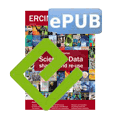e-Infrastructures Enabling Trust in the Era of Data-Intensive Science
 by Carlos Morais Pires, Scientific Officer at the European Commission, Excellence in Science DG/CONNECT
by Carlos Morais Pires, Scientific Officer at the European Commission, Excellence in Science DG/CONNECT
The World Wide Web is a global communication platform transforming research and education. The data-driven paradigm, although in different contexts, affects all fields of science. New scientific methods are emerging supported by unprecedented ability to move data around and the capacity to process them even in extreme large volumes . Trust in the scientific enterprise builds on evidence-based methods and mechanisms of peer review and scrutiny. This has been working well for centuries involving more or less homogeneous groups of scientists. But if trust is a fundamental and time invariant value of science, it has to scale in order to preserve it in a hyper connected world. It has to take into account multidisciplinary approaches, citizens’ growing scientific literacy and their engagement in science. The Web obliges us to reflect and put in place a framework for webs of trust. In order to scale, a trust-enabling framework has to get the acceptance of the wider research communities, incorporating incentives to push further frontiers of knowledge. It has to promote a culture of transparency supporting reproducibility of experiments for well-founded review. It should take into account established good practices and traditions which differ across scientific communities. The European Commission (EC) has been working on a framework of open science addressing in particular the impact from data, computing and networking infrastructures. Important steps were taken when launching Horizon 2020.











